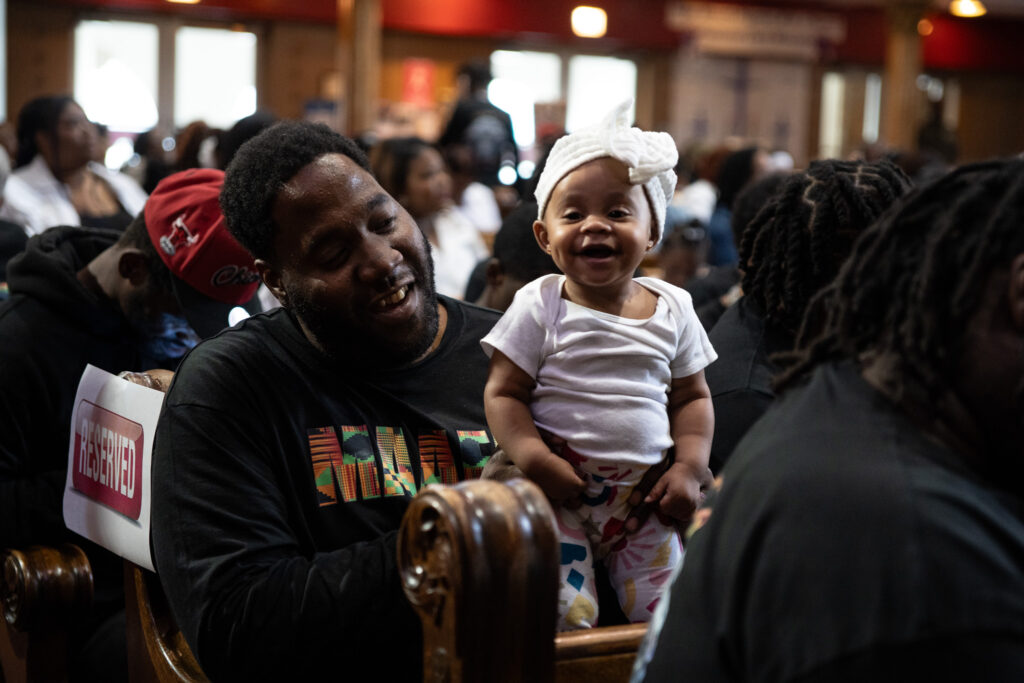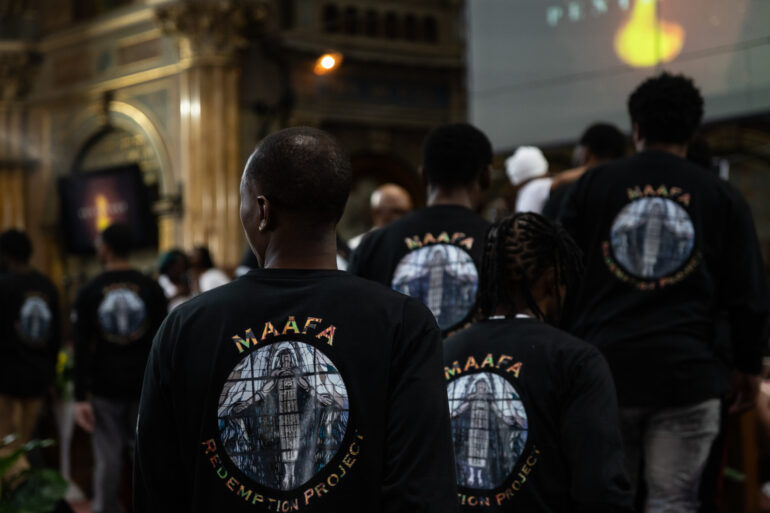In West Garfield Park, a square-mile Chicago neighborhood that has seen nearly 1,000 shootings throughout the past five years — roughly one every other day — young people live in a constant state of fear. They watch over their shoulders, wary not only of those called to protect and serve but also of each other. Some clutch guns, feeling there is no justice, no peace, no protection.
This neighborhood exemplifies a devastating reality: Chicago, the nation’s third-largest city, experiences more homicides than New York City and Los Angeles combined. In 2021 alone, 800 people lost their lives to gun violence in Chicago.
But beneath these grim statistics lies a deeper truth that rarely makes headlines: gun violence is merely a symptom of a more profound moral crisis.
Beyond the Surface
Gun violence is the moral issue of our time, but the way it’s discussed and the resulting solutions are often misinformed. The root causes run deeper than most policy discussions acknowledge, and decades of disinvestment continue reverberating in environments where violence thrives.
To address these conditions, New Mount Pilgrim Missionary Baptist Church created the MAAFA Redemption Project. Unlike typical gun violence prevention programs, MAAFA recognizes that “if you’re providing services, it’s like putting a Band-Aid on a bullet wound. It doesn’t matter how much money you throw at the symptoms, because the underlying problem will continue to fester.”

Rebuilding from Within
MAAFA’s approach begins with the individual. The program creates a space for young people to heal, see themselves differently, and reimagine their community. While it provides crucial wraparound services — housing, workforce development, and mental health support — the lifeblood of the work is what Howard Thurman called “the mutual sharing of dignity and worth.”
Every morning after prayer and before meditation, participants stand with pride and recite the MAAFA motto, reinforcing their value and potential.
“The unexamined life is not worth living,” says program leadership, drawing on Plato’s wisdom. MAAFA provides that space for examination — a safe environment in which to be vulnerable, build trust, and repair the internal walls that create a sense of integrity. This personal healing empowers individuals to “go out beyond these four walls and build peace, community, and healthy relationships.”
Healing Relationships
At MAAFA, relationships form the foundation of all healing work. The program has found that the deepest wounds often come from family, making reconciliation a central focus. What does it look like to bring estranged parents into this space, to break bread and address years of resentment? Or to facilitate peace circles with police officers out of uniform, allowing both sides to recognize each other’s humanity?
The program extends this relationship healing to participants’ children, partners, and broader community connections. This is crucial because, contrary to popular belief, gun violence in these neighborhoods isn’t typically perpetrated by strangers. “First couple of cohorts — guys who may have gone to elementary school together, now call each other ops and are trying to take each other out,” program leaders observe.

Community Development Hand-in-Hand
West Garfield Park has tremendous potential. It’s one of Chicago’s youngest neighborhoods, with about 57 percent of residents under 35. It features beautiful architecture, park space, and a rich history of community organizing.
MAAFA’s work will extend beyond individual healing to community transformation through the Sankofa Wellness Village, where hospital partners and community-based organizations will collaborate to provide services that the community wants and needs.
This approach recognizes that “direct service and community development have to go hand in hand.” By centering community members and building relationships between legacy residents and development partners, MAAFA prevents the displacement that often accompanies revitalization efforts.
A Replicable Model
MAAFA is creating a replicable model that can transform neighborhoods facing similar challenges nationwide. Their work demonstrates the “magic that can happen when genuine community-based organizations, faith-based organizations, and hospital-based partners come together.”
By investing deeply in individual growth, MAAFA empowers young Black and brown men and women to become the designers and drivers of a brighter future for their entire community. In the face of overwhelming violence statistics, MAAFA reminds us that true healing comes not from outside intervention but from within communities themselves — through dignity, relationship, and the unwavering belief in human potential.
How to Help
MAAFA works to educate and empower Black and Brown youth and young adults. Donations help the organization provide a safe environment, uniting direct service with a vision of community development that empowers young people and community members to drive restorative change.

This post was submitted as part of our “You Said It” program.” Your voice, ideas, and engagement are important to help us accomplish our mission. We encourage you to share your ideas and efforts to make the world a better place by submitting a “You Said It.”

